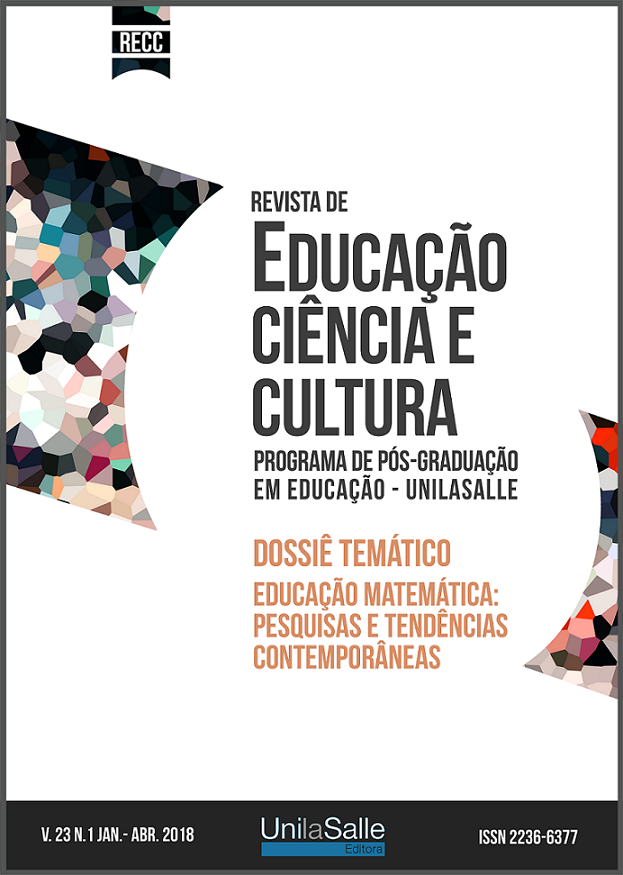For a policy of the tiny little: ethnic-racial relations in their interfaces with Mathematics Education
DOI:
https://doi.org/10.18316/recc.v23i1.4267Keywords:
Racism, Mathematical Education, Policy of the Tiniest.Abstract
Most of the Brazilian population is comprised of people who recognize themselves as black or mixed. Despite this, the processes of discrimination and prejudice against afro-descendant people and their culture are part of daily life, including in school educational situations. This article problematizes from a Foucaultian perspective some aspects of racism and its repercussions. Regarding the notion of race, Foucault argues that this concept, with its link to biological aspects, will only appear at the end of the nineteenth century with the idea of superiority of a race in comparison to others. The article presents elements of research studies that analyzed aspects of racism in texts and images presented in textbooks and microaggressions such as laughter and debauchery present in jokes that make the “other” inferior.The text also discusses the resonance of public policies, especially Federal Brazilian Law 10.639, and discusses aspects of Afro-Mathematics as a possibility to give visibility to the studies of mathematics created in the African continent articulated with the ethnic-racial discussions in school practices and mathematical education. In order to contribute to the problematization, we bring aspects of a field study carried out in a school of a Quilombola community in Northeast Brazil. The reflections of this article point us to the need of to include in the school curriculum different ways to mathematize the world, but with the care that such incorporation can empower the other, and do not subordinate the other to hegemonic mathematics. In this sense, the article defends the idea of considering a policy of the tiny little which accounts for analyzing the micro-powers that affect our practices in the school context.
Downloads
Published
Issue
Section
License
Authors must submit their manuscripts to be published in this journal agree with the following terms:Authors maintain the copy rights and concede to the journal the right of first publication, with the paper simultaneously licensed under the License Creative Commons attribution that permits the sharing of the paper with recognition of authorship and initial publication in this journal.
Since the articles are presented in this journal of public access, they are of free use, with their own attributions for educational and non-commercial purposes.
The Periodic Journal of Education, Science and Culture in http://www.revistas.unilasalle.edu.br/index.php/Educacao was licensed with a Creative Commons - Attribution - Noncommercial 3.0 Not Adapted.


